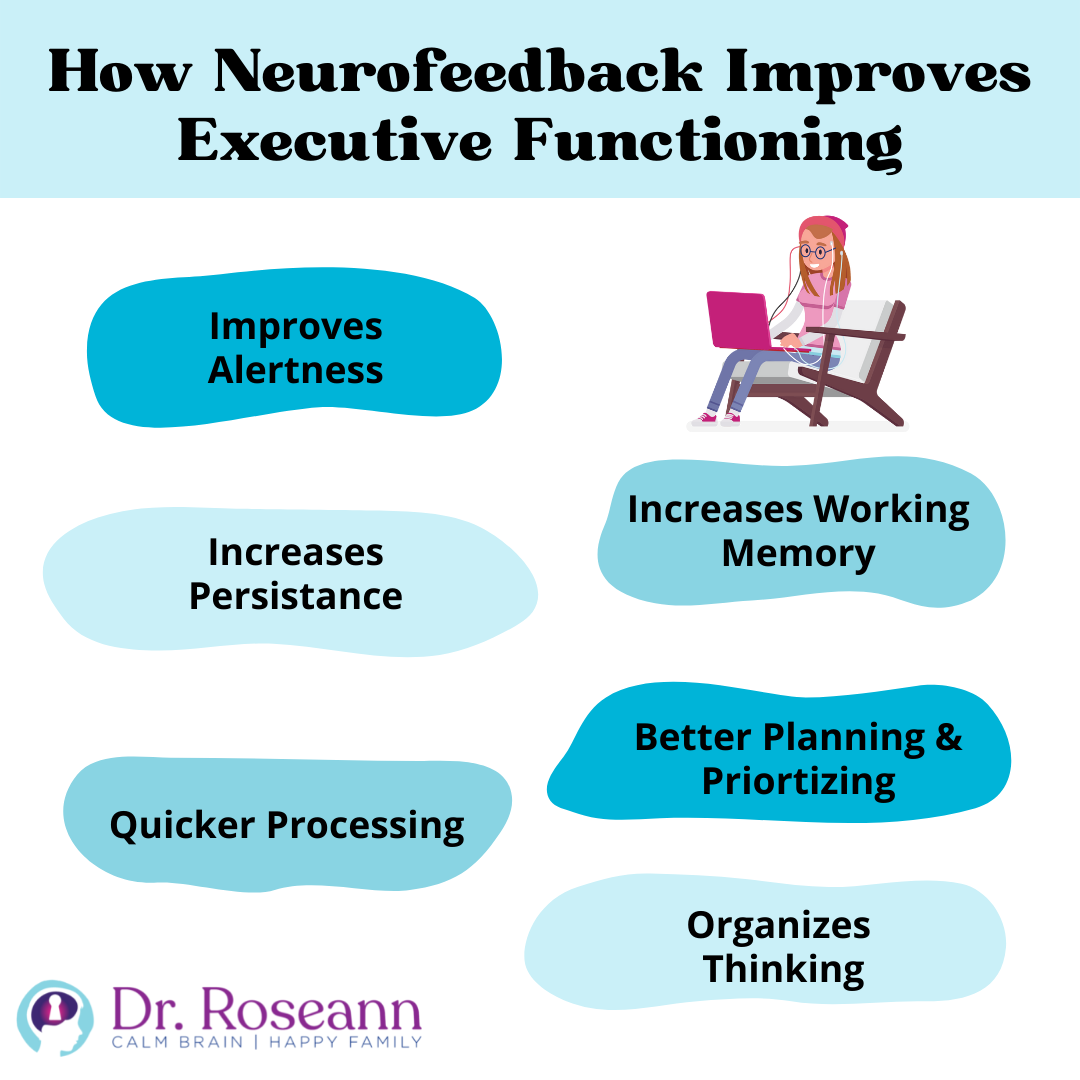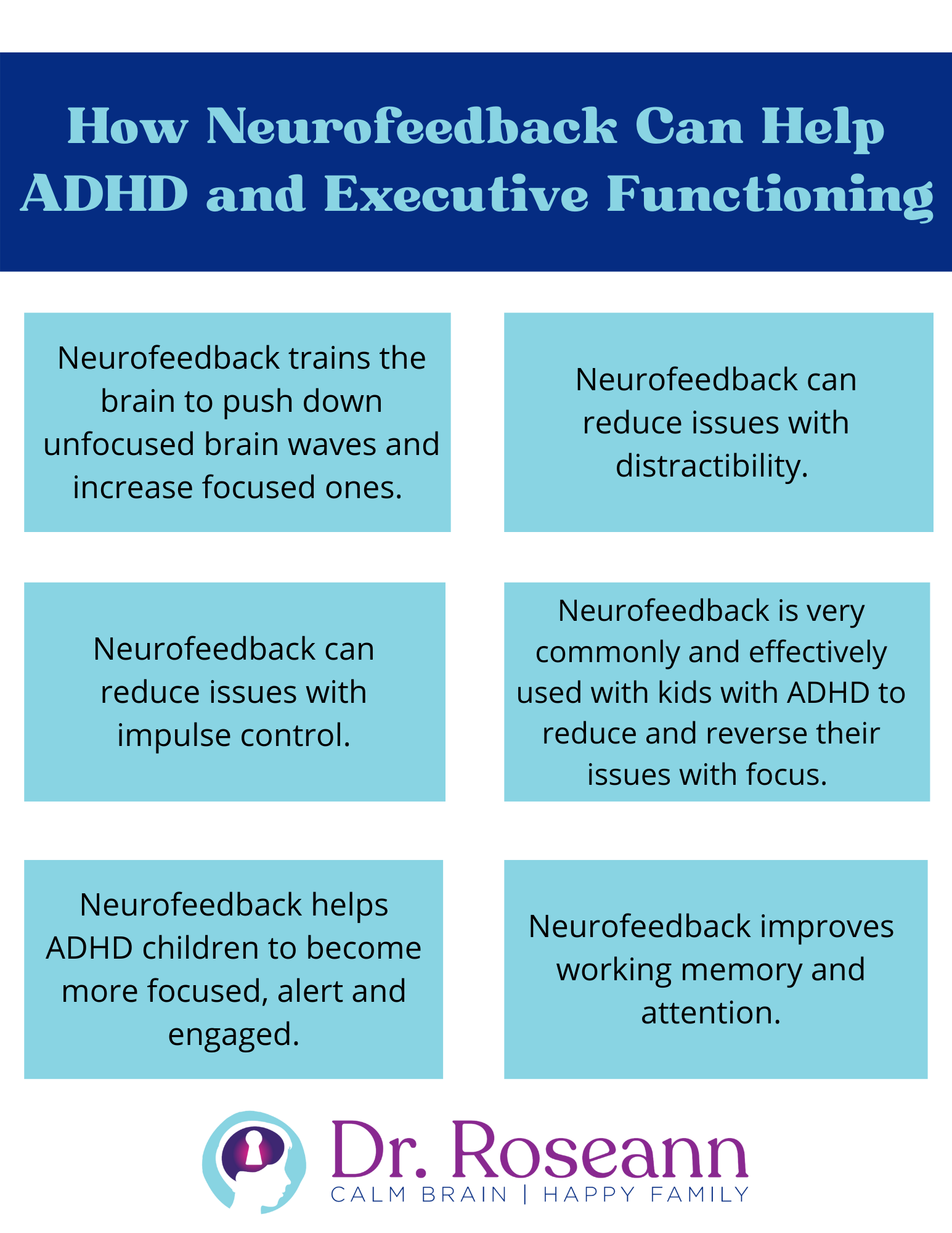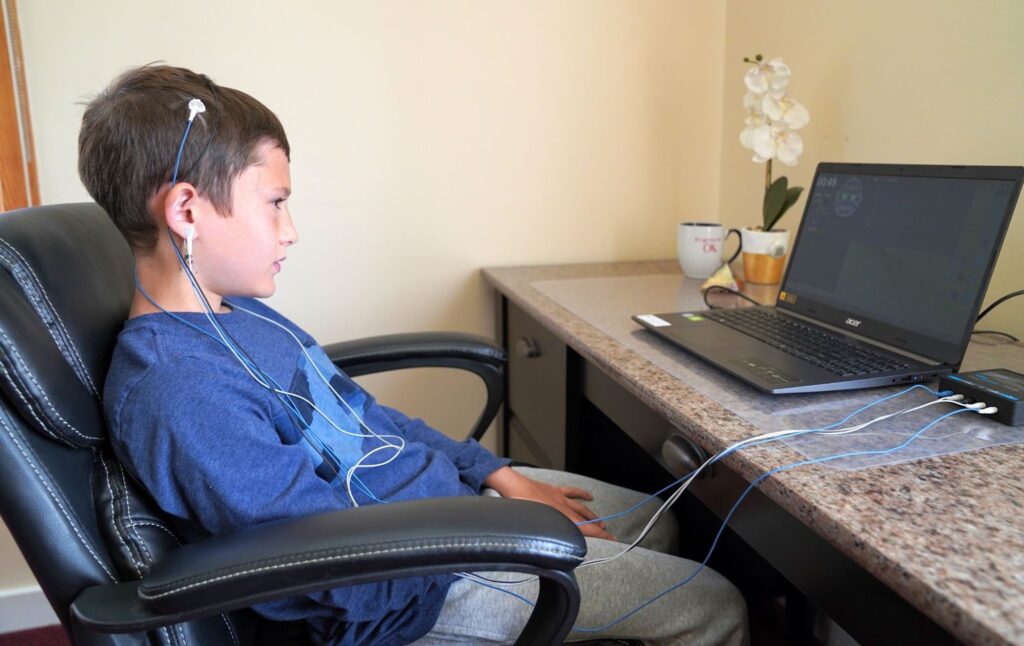Your child's school performance depends on a lot of factors, but having good executive functioning skills is a key factor to achieve good grades, independent problem solving and task completion.
Executive functions are important for success at school and home life because they are a set of mental skills that help one prioritize and plan, as well as organize their thinking and actions for a future action or goal. To be successful in completing a task, one just doesn't jump into it, rather, they prioritize actions and make a mental plan toward some future outcome or goal. You have to see that end result, whether it is a good test grade, a clean room, or having friends to do things with after school and coordinate many brain functions in order to make those things happen.
People with good executive function skills, have an innate ability to “see” that end result and put the right actions in place in the right order. Even if a child or teen doesn't have these innate skills, they can learn these EF skills that improve school performance, grades, and task completion.
It is those strategic planning skills that help you see that future goal and work towards it. We all know people who are really good at having a vision of what they want to and then create an action plan around it and those are people with good executive functioning skills.
What Skills Do You Need for Better Grades?
Having good executive functioning skills are the foundation for academic success. Even though intelligence is important, it really is the ability to complete tasks independently that becomes the determining factor for good grades. Kids need to be able to develop those mental skills that allow them to plan, prioritize and organize their actions.
Foundational executive functioning skills include, response inhibition (putting the breaks on), working memory, emotional control, flexibility, sustained attention (especially during boring tasks), and task initiation. Advanced executive functioning skills include planning and prioritizing, organization, time management, goal-directed persistence, metacognition (thinking about your thinking), and stress tolerance.
Without stress tolerance and flexibility, not much learning can occur and many kids become overdependent on adults to help them start and complete tasks. This constant need for scaffolding creates an interdependence that can result in failure to launch young adults.

How Can Neurofeedback Improve Executive Functioning?
Improving executive functions with neurofeedback is an effective way to get the frontal lobe regulated and alert. Different from one with Attention Deficit Hyperactivity Disorder (ADHD), kids with executive functioning may be able to alert but can't coordinate their actions to complete tasks because they just don't “see” the end result. Even though executive functioning problems can result from clinical issues such as ADHD, brain injury, anxiety or depression, OCD, etc., they also can be a stand-alone issue.
Because kids with poor EF skills don't know what they are working towards, they lack good cognitive processes such as working memory and problem solving skills that help them coordinate their efforts to get tasks done.
These kids are generally perplexed with everyday tasks that lead to big outcomes. For example, brushing their teeth daily prevents them from getting cavities or studying a little every day means you can earn an “A” on the test. It doesn't matter if they have a 137 IQ when they lack those mental skills that result in independent behaviors (you know the ones his sister has that leaves you scratching your head why).
Neurofeedback training for improving executive functioning in children and teens involves first measuring brain functioning with a brain map or brain check and then setting a protocol.
Neurofeedback not only improves attentiveness, it also improves other frontal lobe functions including working memory, organization and planning, and persistence. When the brain is regulated and calm, kids can process more efficiently and tolerate everyday stress. That means they have the brain capacity to complete tasks.
Pairing neurofeedback with cognitive training as we do in our BrainBehaviorReset™ Program, helps kids who struggle with attention and executive dysfunction, learn the mental skills they need to see and work toward academic and life goals that stop the over reliance on adult support that really breaks down relations at home.
We take a multi-pronged approach in our program and use innovative, science-backed methods that you won't find anywhere else and all under the direct guidance of Dr. Roseann, the top children's mental health expert with more than 30 years of success in treating ADHD, executive functioning and other clinical conditions. Our trademarked program offers so much more than just neurofeedback alone and is designed to reset the brain and behavior, so your child can calm their brain and be more alert, listen better, and you can break the “nag cycle” you all are stuck in!
Always remember… “Calm Brain, Happy Family™”
Disclaimer: This article is not intended to give health advice and it is recommended to consult with a physician before beginning any new wellness regime.

Always remember… “Calm Brain, Happy Family™”
Are you looking for SOLUTIONS for your struggling child or teen?
Dr. Roseann and her team are all about solutions, so you are in the right place!
There are 3 ways to work with Dr. Roseann:
You can get her books for parents and professionals, including: It’s Gonna Be OK™: Proven Ways to Improve Your Child’s Mental Health, Teletherapy Toolkit™ and Brain Under Attack: A Resource For Parents and Caregivers of Children With PANS, PANDAS, and Autoimmune Encephalopathy.
If you are a business or organization that needs proactive guidance to support employee mental health or an organization looking for a brand representative, check out Dr. Roseann’s media page and professional speaking page to see how we can work together.
She is the founder and director of The Global Institute of Children’s Mental Health and Dr. Roseann Capanna-Hodge. Dr. Roseann is a Board Certified Neurofeedback (BCN) Practitioner, a Board Member of the Northeast Region Biofeedback Society (NRBS), Certified Integrative Medicine Mental Health Provider (CMHIMP) and an Amen Clinic Certified Brain Health Coach. She is also a member of The International Lyme Disease and Associated Disease Society (ILADS), The American Psychological Association (APA), Anxiety and Depression Association of America (ADAA) National Association of School Psychologists (NASP), International OCD Foundation (IOCDF) International Society for Neurofeedback and Research (ISNR) and The Association of Applied Psychophysiology and Biofeedback (AAPB).
© Roseann-Capanna-Hodge, LLC 2023
Disclaimer: This article is not intended to give health advice and it is recommended to consult with a physician before beginning any new wellness regime. *The effectiveness of diagnosis and treatment vary by patient and condition. Dr. Roseann Capanna-Hodge, LLC does not guarantee certain results.













